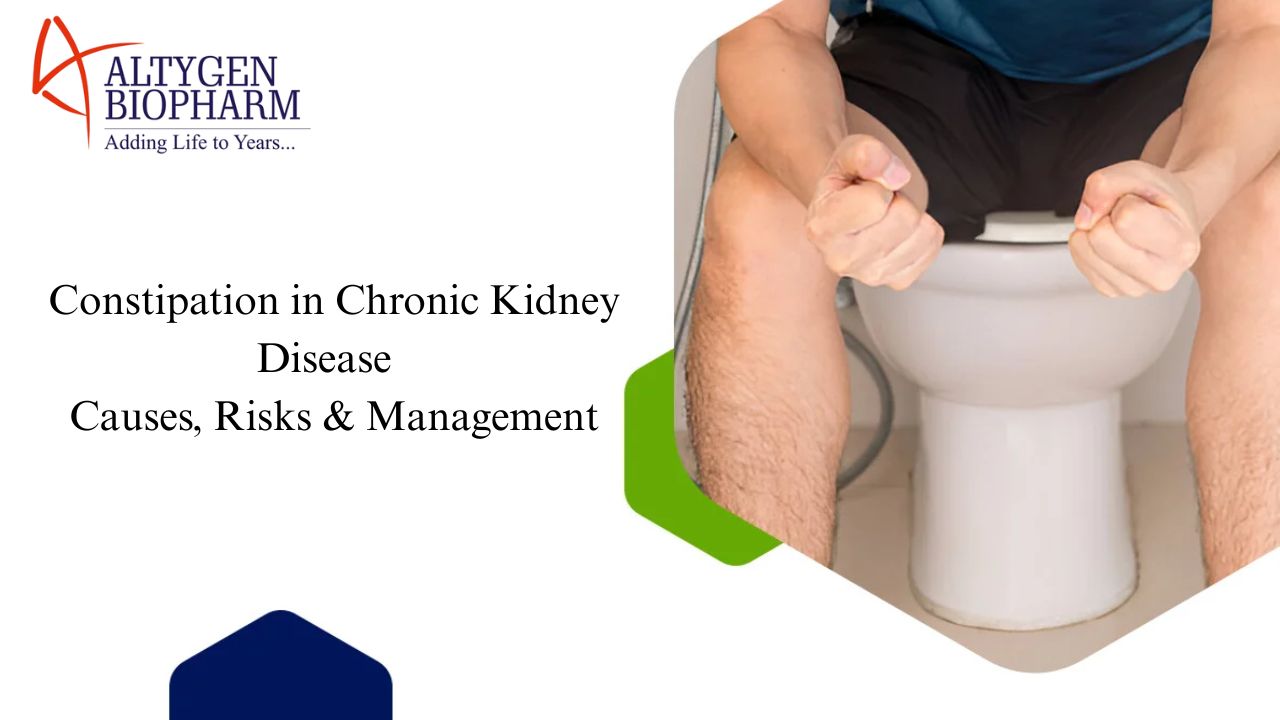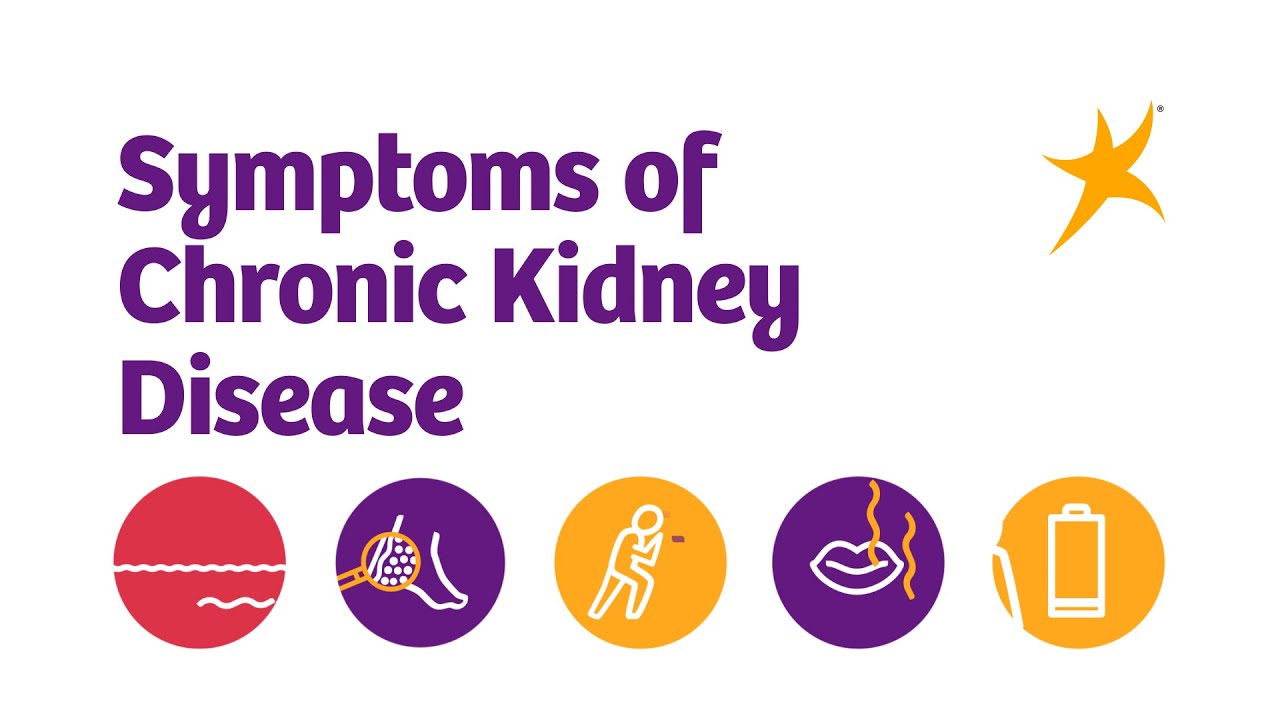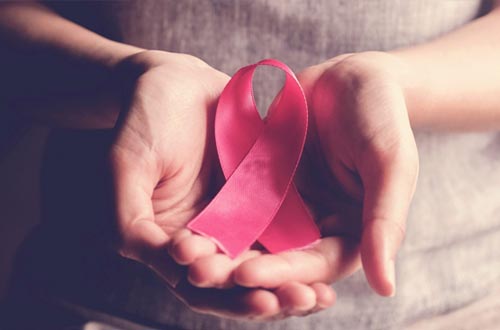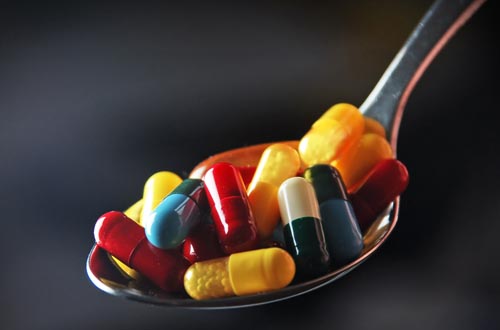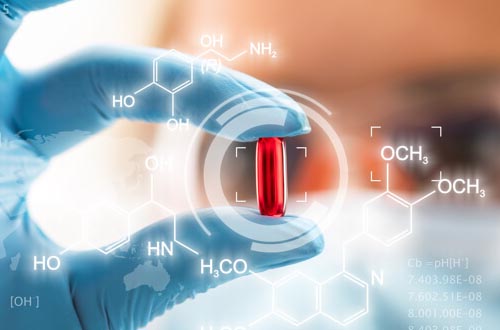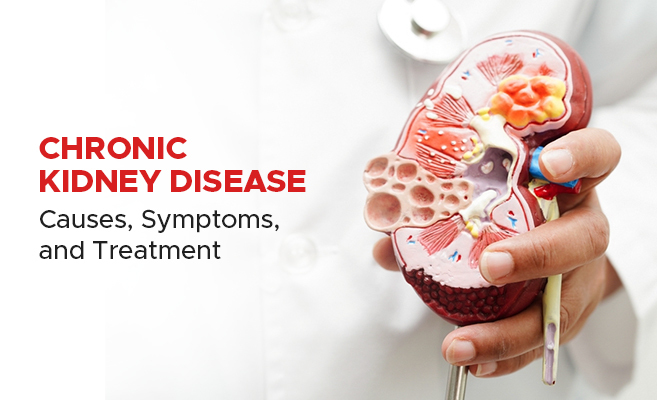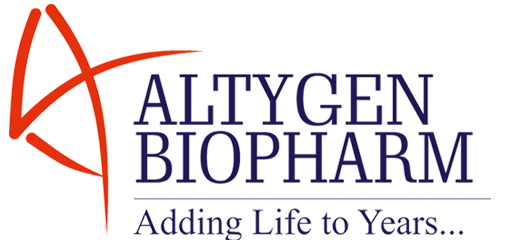Chronic kidney disease (CKD) is a serious health condition that affects millions of people worldwide. It's a silent killer that frequently goes undiagnosed until it's too late. In this blog, you will learn about what causes CKD, its symptoms, and why it's essential to be aware of this condition.
What is Chronic Kidney Disease?
The kidneys are essential organs that filter waste products and excess fluids from the blood, producing urine. When they become damaged over time and are unable to perform their function adequately, it leads to chronic kidney disease. Unlike acute kidney injury, which occurs suddenly and is often reversible, CKD develops gradually and can progress to kidney failure.
Chronic kidney disease causes
1. Diabetes
High blood sugar levels over time can damage the blood vessels in the kidneys, impairing their function.
2. High Blood Pressure (Hypertension)
Uncontrolled high blood pressure can damage the small blood vessels in the kidneys, leading to CKD.
3. Glomerulonephritis
This is inflammation of the kidney's filtering units (glomeruli) and can be caused by infections or autoimmune diseases.
4. Polycystic Kidney Disease (PKD)
Inherited condition characterized by the growth of cysts in the kidneys, leading to their gradual enlargement and impairment of function.
5. Kidney Stones
Recurrent kidney stones or large stones can cause blockages in the urinary tract, leading to kidney damage.
6. Urinary Tract Infections (UTIs)
Repeated or severe UTIs can cause scarring in the kidneys, impairing their function.
7. Obesity
Being overweight or obese increases the risk of developing CKD, especially when accompanied by other risk factors such as diabetes and hypertension.
Chronic kidney disease symptoms
Early stages of CKD may not present any noticeable symptoms, which is why it's often referred to as a silent disease. However, as the illness worsens, the following signs and symptoms could appear:
1. Fatigue
Feeling unusually tired, even after adequate rest, is a common symptom of CKD due to the buildup of waste products in the body.
2. Swelling
Swelling occurs due to the retention of fluids in the body, typically in the legs, ankles, or around the eyes.
3. Shortness of Breath
Accumulation of fluid in the lungs can lead to difficulty breathing, especially during physical exertion or when lying down.
4. Changes in Urination
This may include frequent urination, especially at night (nocturia), foamy or bubbly urine, or difficulty urinating.
5. Nausea and Vomiting
The buildup of waste products in the blood can cause nausea, vomiting, loss of appetite, and weight loss.
6. Itching (Pruritus)
Dry and itchy skin, often worse at night, can occur due to the buildup of toxins in the blood.
7. Muscle Cramps and Weakness
Electrolyte imbalances resulting from kidney dysfunction can lead to muscle cramps and weakness.
8. High Blood Pressure
CKD can cause or worsen hypertension, which further accelerates kidney damage. Chronic kidney disease is a serious condition that requires early detection and management to prevent complications such as kidney failure, cardiovascular disease, and even death. Regular check-ups with healthcare professionals, especially for individuals with risk factors such as diabetes, hypertension, or a family history of kidney disease, are essential.
Maintaining a healthy lifestyle, including a balanced diet low in salt and processed foods, regular exercise, avoiding smoking and excessive alcohol consumption, and managing underlying conditions such as diabetes and hypertension, can help reduce the risk of developing CKD or slow its progression.
Awareness about the causes and symptoms of CKD is crucial for early intervention and better outcomes. By taking proactive steps towards kidney health, we can reduce the burden of chronic kidney disease and improve the quality of life for millions of people in India and around the world.
Frequently asked questions
Ques. What are the 4 types of kidney disease?
Ans: Polycystic Kidney Disease (PKD)
Simple Kidney Cysts
Kidney Infection (Pyelonephritis)
Kidney Stones
Ques. Can kidney disease be cured?
Ans. Chronic kidney disease (CKD) has no known cure, although medication can help manage symptoms and prevent the condition from getting worse. The course of your CKD will determine how you will be treated. The primary interventions consist of changing one's lifestyle to maintain optimal health.
Ques. What is the most common kidney disease?
Ans. When you have chronic kidney disease (CKD), your kidneys are harmed and unable to filter your blood, which is what keeps you healthy. The majority of patients do not exhibit symptoms in the early stages of the illness. However, wastes can accumulate in your blood and cause nausea as kidney disease worsens.
Ques. What foods are bad for Kidney?
Ans. Foods that are bad for you or that damage your kidneys are not always the case in people with healthy kidneys. But if you have chronic kidney disease (CKD), your doctor might suggest a diet that is good for your kidneys. A diet that is suitable for kidneys may consist of:
- Limiting your intake of salt foods. Also, this aids in blood pressure regulation.
- Maintaining a healthy protein intake. Out of all food groups, protein produces the most waste. Hence, reducing protein can aid in maintaining the function of your kidneys since they remove waste.
- Consumption of heart-healthy foods.
- Consuming phosphorus-deficient food. Complete grains and fresh produce are included in this. High-phosphorus foods include dairy products and beans.
- Avoid potassium-rich foods like potatoes, oranges, and bananas.
Leave a Reply
Your email address will not be published. Required fields are marked *


